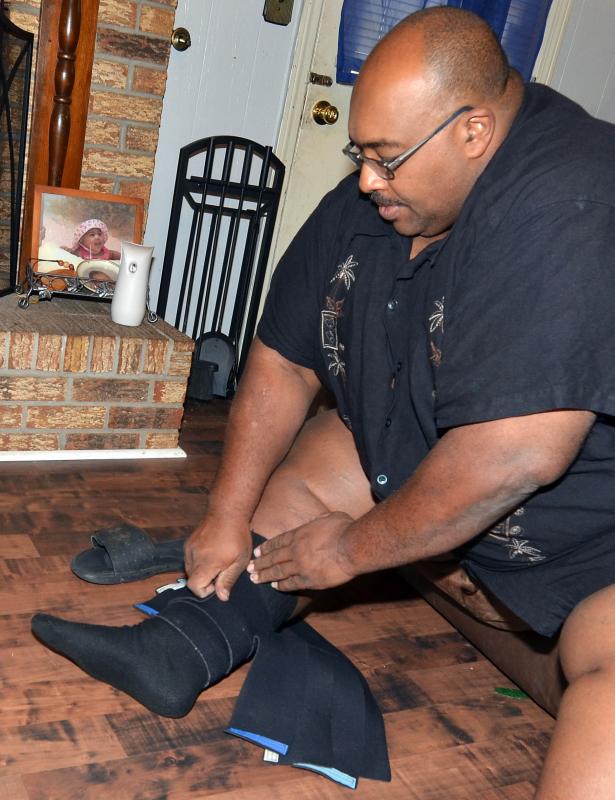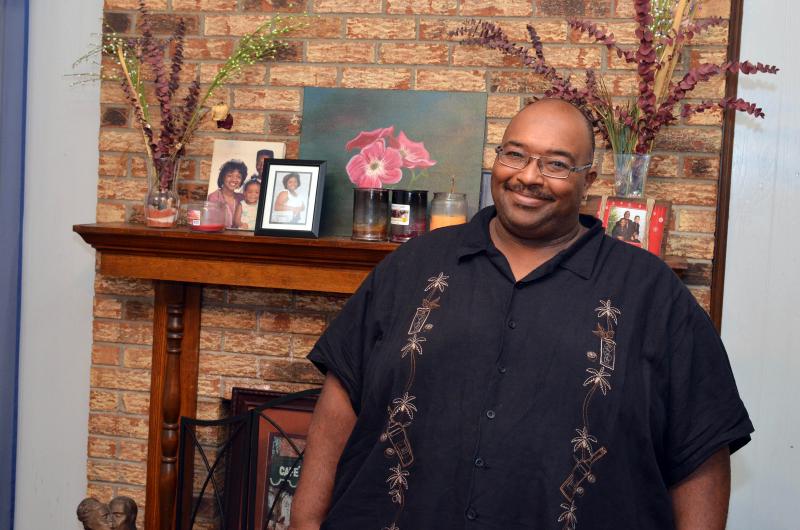For over 15 years, Eric Kelly of Jackson has been living with lymphedema.
The chronic condition causes swelling in the arms or legs from lymphatic fluid buildup, and there is no cure. But it can be managed with proper care.
“It’s something that’s just never going to go away,” said Kelly, who has lymphedema in his legs. “It’s a steady process of learning to manage it. And I’m managing it much better now—I’m able to walk better, without pain.”
He credits the turnaround to Complete Decongestive Therapy (CDT), a treatment offered at Methodist Rehabilitation Center’s outpatient clinic in Ridgeland. The clinic will offer free screenings for the therapy on March 3, and Kelly hopes his experience encourages other to try it.
“There are probably a lot of people who just don’t know what they have,” Kelly said.
His condition started as swelling in his feet to the point he couldn’t put his shoes on.
He went through several doctors and diagnoses, before a doctor treating him for stomach cancer recognized he had lymphedema. The condition can be a side effect of some cancer treatments, which can cause damage to the lymphatic system.
Kelly says he has tried some other therapies, but the condition became more and more of a problem.
“It had gotten to where I couldn’t control the swelling in my leg,” he said.
That’s when his family doctor referred him to Methodist Rehab, where Certified Lymphedema Therapist Lori Towery started him on his regimen of CDT.
“Anybody at any stage of lymphedema can benefit from the techniques used in CDT,” Towery said.
CDT combines several approaches for managing the condition. First, swelling is addressed by facilitating the movement of fluid using manual lymphatic drainage, which Towery likens to getting a gentle massage.
“It’s a very soothing treatment,” she said. “Once we have the swelling under control, we fit them with a compression garment.”
Towery refers her patients to Methodist Rehab’s Orthotics & Prosthetics clinic in Flowood, where soft goods fitter Helen Lamb selects and customizes garments to fit the patient’s needs.
“A lot of what we use I’ve actually worn myself to make sure they’ll work for our patients,” Lamb said. “Are they comfortable? Is it something durable?”
She recommends replacing the garments every six months to keep the condition under control.
Kelly says before coming to Methodist, he wore the same garment for five years.
“I just didn’t know that you were supposed to get a new wrap,” he said.
Towery says that knowing proper self-care is crucial to CDT’s success.
“A lot of CDT therapy is about education,” Towery said. “The patient has to take responsibility for managing this condition.”
Another important therapy is skin care.
“There is a high risk of infection associated with lymphedema,” Towery said. “This therapy helps with controlling the number of infections by educating patients on how to care for their affected limbs and avoid risk factors.”
The final component of CDT is decongestive exercise, which promotes the movement of lymphatic fluid out of the congested limb. The smaller limb size improves mobility.
“For lower extremities, to be able to get into a car, get in and out of bed—these things can become difficult,” Towery said. “For upper extremities, things like wearing a normal size shirt and just getting dressed can be a problem.”
Kelly says that lymphedema can also take a toll on your self-esteem.
“When you walk into a room and people are always looking down at your leg, it makes you feel uncomfortable,” he said. “This treatment really brings you back, gives you your self-confidence back.
“It definitely improved my quality of life.”
To schedule your free screening for CDT, call 601-856-5493 or visit www.methodistonline.org/CDTscreening.


